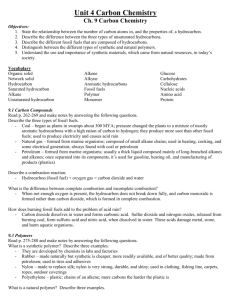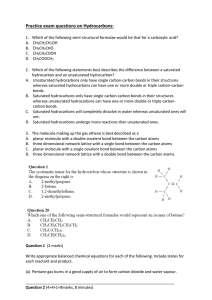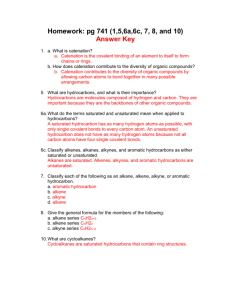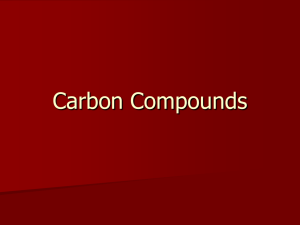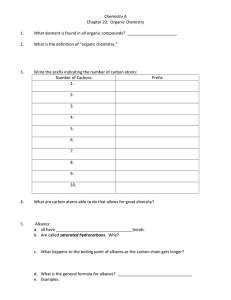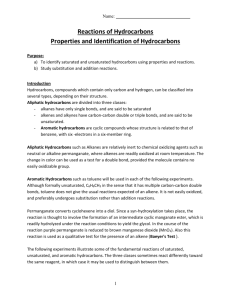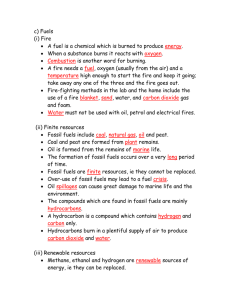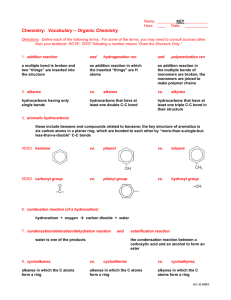Carbon
advertisement
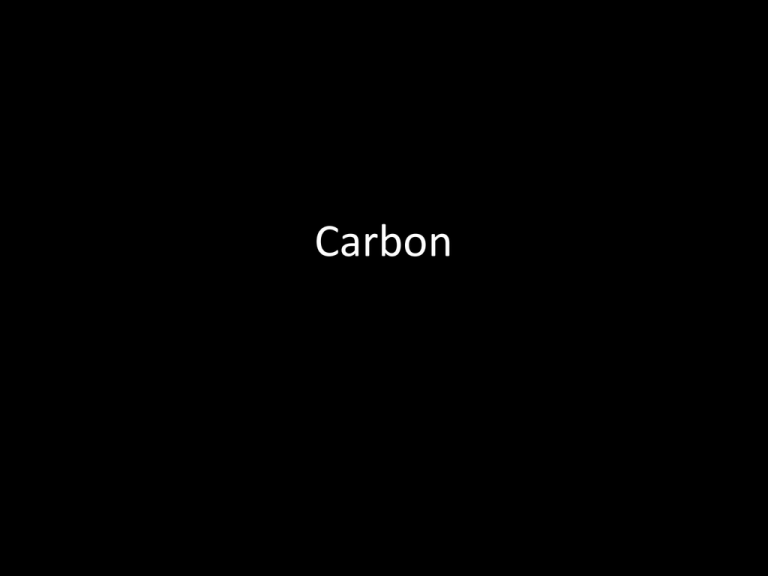
Carbon What is Carbon? The element Carbon exists in almost everything, it makes up everything living thing Carbon exists in several different forms including Diamond, Graphite, and Fullerenes Diamond • There is no substance harder than diamond • Diamond is carbon that has been highly compressed and heated • Each carbon atom in diamond is linked with 4 other carbon atoms by a covalent bond Graphite Although still made of Carbon, graphite has very different properties Graphite is extremely soft In graphite, each atom of Carbon forms bonds with three other carbon atoms Fullerenes • Discovered in 1985, fullerenes is a third form of Carbon • Fullerenes is found in soot after carbon compounds have been burned • The atomic structure looks like hollow spheres Hydrocarbons A hydrocarbon is an organic compound consisting of only Carbon and Hydrogen Hydrocarbons can be saturated or unsaturated Saturated Hydrocarbons All of the bonds in a saturated hydrocarbon are single bonds A saturated hydrocarbon contains the maximum possible number of hydrogen atoms for each carbon atom Saturated Hydrocarbons cont. • Saturated hydrocarbons have unique properties • These properties are based on the number of Carbon and Hydrogen atoms and how they are arranged • They can be arranged in straight chains, branched chains, or rings Straight Chains of Hydrocarbons • The number of carbon atoms and hydrogen atoms in a straight chain affects the phase state at room temperature • Methane is a gas at room temp • Octane is a liquid at room temp Methane Octane Branched Chains of Hydrocarbon Branched chains indicate isomers An isomer is a compound with the same molecular formula but different atomic structure Butane (single chain) : Isobutane (branched chain) : Hydrocarbon Rings Hydrocarbon rings have a structure that looks like a ring Unsaturated Hydrocarbons • Unsaturated Hydrocarbons are classified by their bond type and arrangement of Carbon atoms • Unsaturated Hydrocarbon contain one or more double or triple bonds Fossil Fuels Some Hydrocarbons were formed from plants and animals that lived in Earth’s oceans and swamps millions of years ago We call these fossil fuels Fossil Fuels cont. Three examples of fossil fuels are: Coal Natural Gas Petroleum Fossil Fuels cont. Coal: A hydrocarbon that has a high ratio of carbon to hydrogen Natural Gas: Made of primarily methane Petroleum: Made of long, branched carbon and hydrogen Fossil Fuel Combustion • Energy from fossil fuels is released by combustion • These combustion reaction products are water and carbon dioxide
